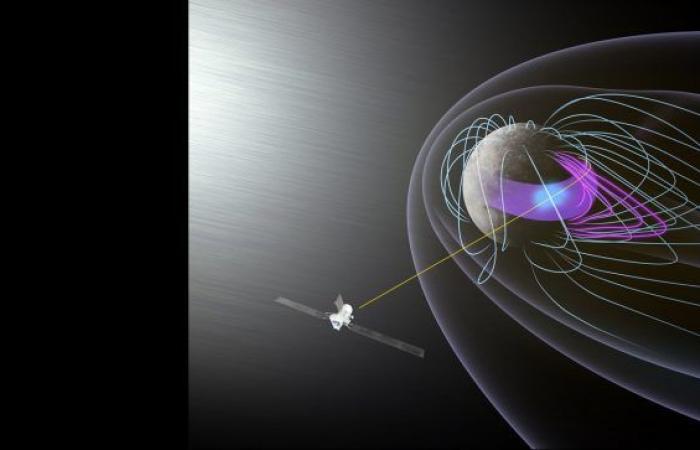The BepiColombo probe flew over the planet Mercury and began measuring the characteristics of its magnetosphere, in part thanks to the MSA ion mass spectrometer to which the Plasma Physics Laboratory (LPP) contributed.
Mercury, like Earth, has its own magnetic field. The zone that it creates around the planet, called the magnetosphere, is the seat of fundamental processes that are still poorly understood.
The BepiColombo probe flew over Mercury in 2023, providing new information on the dynamics of this magnetosphere, in part thanks to the MSA ion mass spectrometer to which the Plasma Physics Laboratory (LPP*) contributed. In 2026, BepiColombo will will insert into orbit around the planet to further reveal it.
To find out more:
European Space Agency press release: https://www.esa.int/Science_Exploration/Space_Science/BepiColombo/Mercury_s_magnetic_landscape_mapped_in_30_minutes
The CNRS press release: https://www.insu.cnrs.fr/fr/cnrsinfo/un-nouveau-paysage-magnetospherique-revele-par-bepicolombomio
These results were published in the journal Communications physics:
Hadid, L.Z., Delcourt, D., Harada, Y. et al. Mercury’s plasma environment after BepiColombo’s third flyby. Commun Phys 7, 316 (2024).
*LPP: a joint CNRS research unit, Paris Observatory-PSL, Sorbonne University, Paris-Saclay University, École polytechnique-Institut Polytechnique de Paris, 91120 Palaiseau, France






